A systematic review and meta-analysis of the efficacy and safety of Coix Seed Decoction in the treatment of rheumatoid arthritis
Ting Xu, Shuo Zhang, Jing-ming Zhang*, Xiu-lei Zhang, Shi-yuan Zhang
1 Shaanxi University of Chinese Medicine, Xianyang 712046, Shaanxi Province, China
2 Beijing University of Chinese Medicine, Beijing 100029, China
Abstract Objective: To systematically evaluate the efficacy and safety of Coix Seed Decoction (“Lei Zheng Zhi Cai”) as the main treatment for rheumatoid arthritis, and provide medication evidence for the clinical treatment of rheumatoid arthritis. Methods: The randomized controlled trials on rheumatoid arthritis treated by Yiyren Decoction were mainly searched in the database of CNKI,WanFang Data, VIP, SinoMed, PubMed, Cochrane library, Springerlink, Web of science, Medline,Embase, ClinicalTrials.gov. Note Express software was used for literature screening and data extraction, and all data were included in Revman 5.3 software for Meta analysis. Results: A total of 11 articles were included in this study, with a sample size of 789 cases. Meta analysis showed that, there were statistically significant differences. Compared with western medicine control group, Coix Seed decoction was significantly effective in treating rheumatoid arthritis, such as remarkably reducing the joint swelling index, joint tenderness index and joint pain index, greatly improving the morning stiffness time without obvious adverse reactions. Conclusion: According to the available evidence at present, treatment of Coix Seed Decoction is confirmed to be effective in treating rheumatoid arthritis, especially in relieving the common signs of rheumatoid arthritis.However, due to the small amount of literature included in this study, more high-quality studies are further required to support the clinical evidence of Coix Seed Decoction in treatment of rheumatoid arthritis, so as to provide more strong TCM evidence-based evidence for clinical medication.
Key words: Coix Seed decoction; Rheumatoid arthritis; Meta analysis; symptoms and signs; efficacy
Introduction
Rheumatoid arthritis is a chronic, systemic and highly disabling autoimmune disease[1]with multiple joint erosion, symmetry and multiple inflammatory lesions as the main clinical manifestations. The epidemiology demonstrates that the number of patients suffering from the disease in China is about 4 million, and its remission rate is about 8.6%[2]. Owing to the unclear etiology and pathogenesis of the disease, there are no effective means for radical cure. However, the disease which is characterized with high morbidity and high disability rate is a serious detriment physically and mentally to patients.Consequently, lessening symptoms and improving the life quality of patients are the optimal treatment approach when the cause cannot be eradicated. At present,commonly used western medicines, such as non-steroidal anti-inflammatory drugs, glucocorticoids and other chemically synthesized anti rheumatic drugs[3], are prone to adverse reactions[4]after long-term use, which is more likely to aggravate the depression of patients and decline the quality of life. However, with the unique advantages of multi-target, multi-curative effect and high safety,traditional Chinese medicine outstands in the prevention and treatment of rheumatoid arthritis, and is gradually widely used in the treatment of rheumatoid arthritis to improve the symptoms and examination indexes related to rheumatoid arthritis; in addition, it has achieved significant therapeutic effect during the application,thus greatly enhancing the confidence of patients and improving their life quality. A number of studies[3]have also shown that Chinese medicine alone or combined with western medicine had better effect. As a result, the treatment of rheumatoid arthritis with traditional Chinese medicine is attracting increasing attentions of medical workers at home and abroad, and plays a vital role in clinical treatment.
In traditional Chinese medicine, rheumatoid arthritis is categorized into “paralysis syndrome”, also known as“aggravated bi”, “arthrosis like crane knee”. Doctors in successive dynasties believed that the disease was caused by deficiency of vital energy, exogenous pathogenic wind, cold, dampness and heat invading muscles, bones and joints, resulting in stagnation of spirit lifeblood and obstruction of collaterals. Coix Seed (Yiyiren) Decoction which originates from the book “Lei Zheng Zhi Cai”written by the doctor Lin Pei-qin in Qing Dynasty is used to treat cold dampness arthralgia and listed as the main prescription for the arthralgia of wind cold dampness arthralgia in the book Internal Medicine of Traditional Chinese Medicine, which is one of the teaching materials for the 13thFive-Year Plan of Higher Education in Chinese medicine industry[5]; with the functions of warming meridians and dispersing cold,removing dampness and relieving pain, dispelling wind and dredging collaterals, it is therapeutically effective on relieving pain, swelling and stiffness of muscles and joints caused by rheumatoid arthritis. Based on a certain number of clinical observations, the efficacy and safety in treating rheumatoid arthritis of Coix Seed Decoction were systematically evaluated in the study, aiming to provide more extensive evidence-based evidence supports for the treatment of rheumatoid arthritis with traditional Chinese medicine.
Data and Methods
Inclusion criteria
(1) Participant: The patient has been clinically diagnosed as rheumatoid arthritis; (2) Study type: Randomized controlled trial (RCT) of traditional Chinese medicine prescription Coix Seed Decoction in the treatment of RA; (3) Intervention: The control group was treated with chemical drugs or combined with other treatment methods, and the treatment group was treated by adding Coix Seed Decoction to the control group; (4) Outcome measures: response rate, joint tenderness index, joint swelling index, joint pain index, morning stiffness time,adverse reactions.
Exclusion criteria
(1) Trials in which the control group contains a combination of other Chinese medicine prescriptions or treatment methods; (2) Trials in which the control group contains Chinese medicine treatment; (3) Documents whose full text cannot be obtained or whose data cannot be extracted; (4) Literature on reviews, cases, and animal experiments; (5) Documents with obvious errors in the document data; (6) Pregnant or lactating women; (7)Rheumatoid arthritis complicated by other immune system diseases.
Literature search
The literature is mainly searched in databases such as CNKI, Wanfang Data, VIP, SinoMed, PubMed, Cochrane Library, Springerlink, Science Net, Medline, Embase,ClinicalTrials.gov and other databases. The following search terms were used: (“yiyiren decoction” OR “yi yi ren decoction” OR “yiyirentang” OR “yiyiren tang” OR“yi yi ren tang”) AND (“rheumatoid arthritis” OR “RA”OR “random” OR “randomized” OR “randomised” in English; (“Coix Seed decoction” OR “Coix Seed”) AND(“rheumatoid arthritis”) in Chinese.
Literature screening and data extraction
Two researchers will independently identify and screen the initially collected literature according to the inclusion and exclusion criteria formulated in this study before excluding those unqualified, then completed further independent data extraction of the included literature with main extracted contents as follows: author, title,publication year, journal, randomization method, sample size, intervention measures, outcome indicators, blinding,etc. Where there is a disagreement between them in crosschecking the literature, a third person is responsible for the final decision.
Quality evaluation
Ghe method in Cochrane Handbook 5.1.0[6]was strictly followed to evaluate the quality and bias risk of the research methodology included in the literature from the following 8 aspects: (1) The correctness of the random plan; (2) The concealment of the allocation plan; (3) The setting of blind method; (4) Comparison of baseline conditions; (5) Completeness of result data; (6) Selective reporting of results; (7) Description of loss to follow-up and withdrawal; (8) Other sources of bias. The evaluation results of each risk of bias were input into Review Manager 5.3, and then a summary chart and a ratio chart of the risk of bias were generated.
Statistical methods
Review Manager 5.3 provided by Cochrane Collaboration will be used for bias evaluation. Firstly, each indicator will be included for heterogeneity analysis to obtain corresponding effect model. Random effect model prevails if heterogeneity exists in I²>50. Otherwise, fixed effect model will be adopted if heterogeneity exists in I²<50. The risk ratio (RR) works as an effect scale for dichotomous variables and mean difference (MD) for continuous variables. Both of them will be expressed by a confidence interval (CI) of 95%. Publication bias may exist in funnel plot analysis.
Results
Literature search results
A total of 63 related subject literature was retrieved in this research. After screening, 25 duplicate and 24 literature that did not meet the inclusion criteria were excluded through further reading the title and abstract content.After reading the full text, 1 literature with quality problems and 1 incomplete literature were also dismissed.Finally, 11[7-17]qualified literature was included in the study and all of them were published in Chinese. The total sample size was 789 cases, including 395 cases in the observation group and 394 cases in the control group.Literature retrieval process is shown in Figure 1.
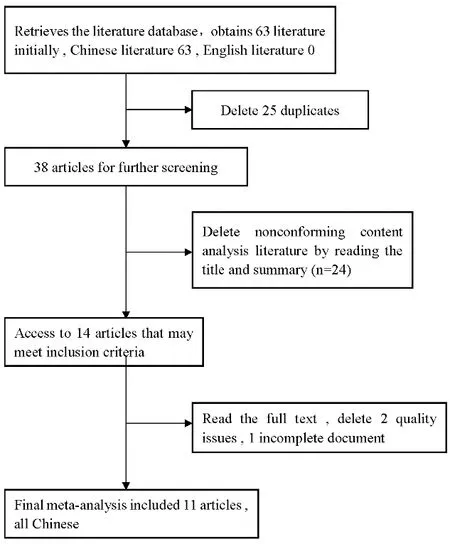
Figure 1 Flowchart of document retrieval
Basic characteristics of the included literature (Table 1)
The basic characteristics of the included 11 literature were summarized and listed in Table 1 with a total of 789 patients. The sample size ranged from 20-60 cases. During the treatment process of the 11 literature, patients were given Coix Seed Decoction in combination with western medicine in the control group. Specific medication and random method selection were also listed in Table 1. Diagnostic criteria of each test: A total of 5 studies followed the ACR RA Diagnostic Criteria 1987 Revision,4 studies adopted with diagnostic criteria in Rheumatoid Arthritis, 1 study was not mentioned and 1 study selected the Guiding Principles of Clinical Research on the Treatment of Arthralgia with New Chinese Medicines.Withdrawal/loss to follow-up and follow-up visits were not mentioned in all the included studies.
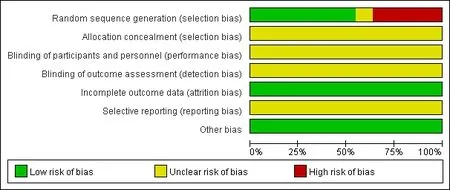
Figure 2 Quality evaluation of included literature (1)
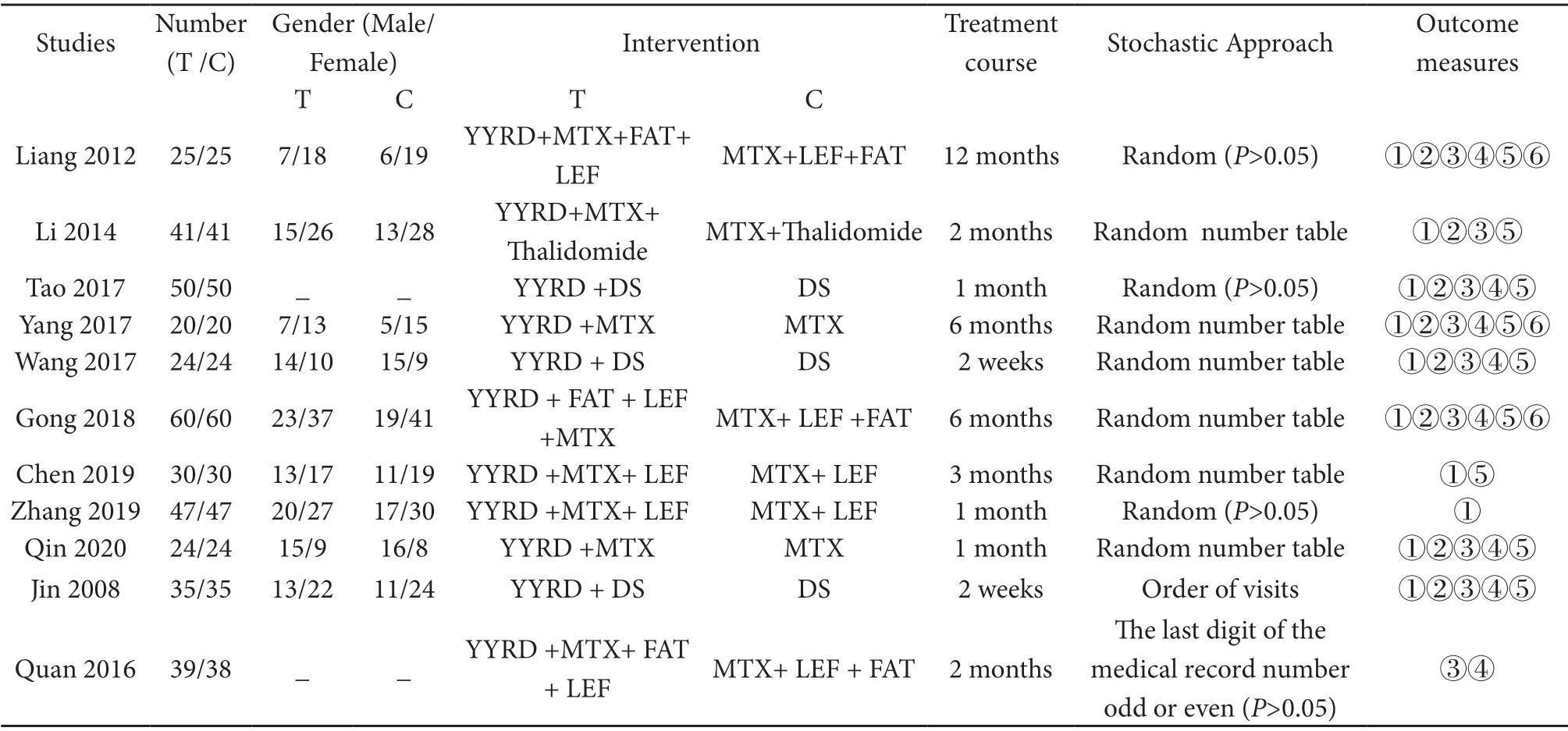
Table 1 Basic characteristics of included literature
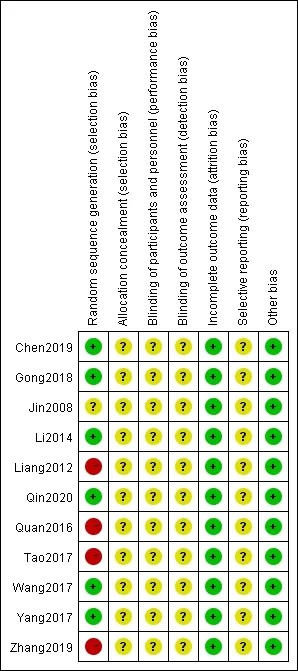
Figure 3 Quality evaluation of included literature (2)
Quality evaluation of included literature
In all the included literature, 6 trails applied randomization during sequence generation. 1 trial used random grouping according to the order of medical treatment; 1 trial adopted odd-even number grouping method according to the last digit of the patient number. The other 3 only mentioned random grouping without specifying in detail. However, all the 11 literature included showedP> 0.05, indicating there were no significant differences in gender, age, symptoms,signs and indicators in all the included studies, and all the above outcome data were properly processed. None of the 11 studies stated whether blind method was used or whether concealment was allocated; nor selective outcome report; nor other bias (Figures 2 and 3).
Meta analysis results
Effectiveness
The effectiveness of using Coix Seed Decoction in the treatment of rheumatoid arthritis was reported in all the included trials[7-17]. Heterogeneity test X²=5.01, I²=0%,therefore, the fixed effect model was selected and the difference was statistically significant. Meta analysis showed that [RR=1.19, 95% CI (1.12, 1.26), Z=5.77,P<0.00001], Coix Seed Decoction could significantly improve the effective rate of RA, and its efficacy was 1.19 times that of western medicine single therapy (Figure 4).
Swollen joint index
Four trials[7,10,12,17]reported changes in patients’ swollen joint index before and after treatment. Heterogeneity test X²=1.78, I²=0%. Therefore, the fixed effect model was used, the difference was statistically significant. Reduction in swollen joint count index was significantly greater for Coix Seed Decoction than chemical drugs used alone according to Meta analysis [MD=-2.08, 95% CI (-2.59,-1.57), Z=8.03,P<0.00001] (Figure 5).
Joint tenderness index
The joint tenderness index before and after treatment was reported in 4 trials[7,10,12,17]. Heterogeneity test X²=0.33, I²=0%, hence the fixed effects model was used,the difference was statistically significant. Compared with western medicine, Coix Seed Decoction can decrease joint tenderness index in patients with rheumatoid arthritis according to Meta analysis [MD=-2.13, 95% CI (-2.68,-1.59), Z=7.64,P<0.00001] (Figure 6).
Joint pain index
The joint pain index before and after treatment was reported in 4 trials[7,10,12,17]. Heterogeneity test X²=1.22,I²=0%, hence the fixed effects model was used, the difference was statistically significant. Compared with western medicine, Coix Seed Decoction can decrease joint pain index in patients with rheumatoid arthritis according to Meta analysis [MD=-1.73, 95% CI (-2.35, -1.10),Z=5.39,P<0.00001] (Figure 7).
Morning stiffness time
Changes in morning stiffness before and after treatment were reported in 3 trials[7,10,12]. Heterogeneity test X²=0.59, I²=0%, therefore the fixed effect model was used,the difference was statistically significant. Compared with western medicine, Coix Seed Decoction shortened morning stiffness time in patients with rheumatoid arthritis according to Meta analysis [MD=-11.50, 95% CI(-14.55, -8.45), Z=7.4,P<0.00001] (Figure 8).
Adverse reaction
The adverse reactions during treatment were identified by 3 trials[7,10,12]. Heterogeneity test X²=0.50, I²=0%. Therefore,the fixed effect model was used, and the difference was statistically significant. Compared with Western medicine control group, Coix Seed Decoction decreased the incidence of adverse reaction according to Meta analysis [RR=0.38, 95%CI (0.25, 0.58), Z=4.48,P<0.00001] (Figure 9).
Publication bias
Using the standard error (the logarithm of odds ratio RR)as the ordinate and RR as the abscissa, an inverted funnel chart was plotted. The results evaluated a symmetrical inverted funnel shape, suggesting publication bias (Figure 10).
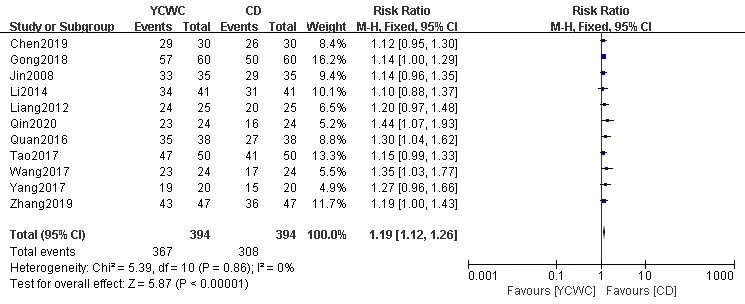
Figure 4 Forest diagram of the effectiveness of Coix Seed Decoction in treating rheumatoid arthritis

Figure 5 Forest diagram of Coix Seed Decoction decreasing swollen joint index in rheumatoid arthritis

Figure 6 Forest diagram of Coix Seed Decoction decreasing joint tenderness index in rheumatoid arthritis

Figure 7 Forest diagram of Coix Seed Decoction decreasing joint pain index in rheumatoid arthritis

Figure 8 Forest diagram of Coix Seed Decoction shortening morning stiffness time in rheumatoid arthritis

Figure 9 Forest diagram of adverse reaction in Coix Seed Decoction and control group

Figure 10 Funnel chart of publication bias
Discussion
Coix Seed decoction consists of Semen Coicis, Radix Angelicae Sinensis, Rhizoma Ligustici Chuanxiong,Rhizoma Zingiberis Recens, Ramulus Cinnamomi,Rhizoma, Radix Angelicae Pubescentis, Radix Saposhnikoviae, White atractylodes rhizome, Glycyrrhiza uralensis, Radix aconiti and Ephedra, with the functions of dispersing cold and relieving pain, dispelling wind and dehumidification. By summarizing 9494 literatures,Zhao Yue et al[7]concluded that “dampness” was the core pathological factor of rheumatoid arthritis, dampness stiction blocked movement of vital energy, thus causing joint swelling and delaying the disease healing. However,dampness is dialectically divided into external dampness and internal dampness in traditional Chinese medicine.The external dampness invades the body as the external evil and stagnates in the meridians and viscera; the internal dampness is caused by overeating, fat, thick and greasy, spleen and stomach not digesting body fluid, and endogenous dampness and turbidity. The internal and external dampness are combined to invade the body[8].It is highly coincided with our living environment and diet habits, thus resulting in a higher incidence rate of rheumatoid arthritis.
Based on the above, Coix Seed Decoction was selected to invigorate the spleen, expel dampness, remove arthralgia and relieve pain. In clinical application, it had remarkable curative effect, especially for those who couldn’t bend and stretch due to severe pain caused by cold and dampness retention in muscles and bones, obstruction of meridians, poor movement of spirit lifeblood. Modern pharmacological studies indicated that coix seed oil,an effective component of coix seed, could alleviate inflammatory reaction and has anti-inflammatory and analgesic effects; ephedra had certain immunosuppressive effect; notopterygium, via down regulation of matrix metalloproteinases, could inhibit the migration of white blood cells and played an anti-inflammatory and analgesic effect; radix angelicae pubescentis could resist inflammation and detumescence; radix saposhnikoviae could inhibit 5-hydroxytryptamine and histamine in inflammatory tissue[9].
A total of 11 articles and 789 patients were involved in this study, the result showed that Coix Seed Decoction was significantly effective in treating rheumatoid arthritis,such as remarkably reducing the joint swelling index, joint tenderness index and joint pain index, greatly improving the morning stiffness time without obvious adverse reactions, and high in medication safety, which could broaden the thinking of clinical treatment of rheumatoid arthritis in the future.
However, the number of literatures involved in the study was relatively small, and individual literatures were deficient in clinical design, the above factors might affect the evidence-based level of the study to a certain extent.Therefore, more high-quality, multi-center, large sample size randomized studies are required in the future to provide more puissant evidence supports for the clinical efficacy of Coix Seed Decoction in the treatment of rheumatoid arthritis.
To sum up, Coix Seed decoction is safe and effective in the treatment of rheumatoid arthritis with stable curative effect.
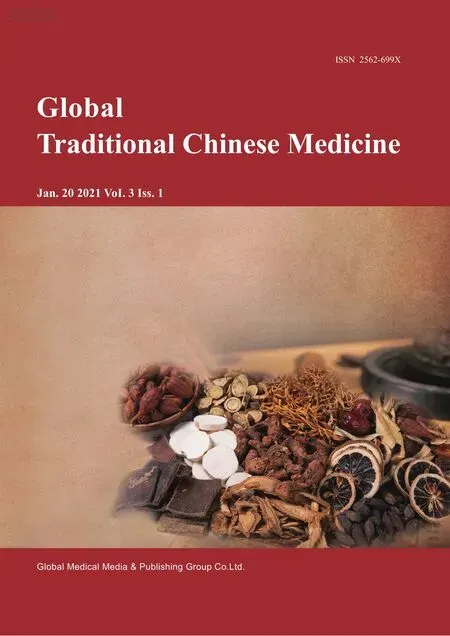 Global Traditional Chinese Medicine2021年1期
Global Traditional Chinese Medicine2021年1期
- Global Traditional Chinese Medicine的其它文章
- Exploration on YE Tianshi’s thinking of medication in the treatment of metrorrhagia and metrostaxis based on data mining
- Analysis of the medication for impotence based on data mining
- Etiology, pathogenesis and treatment of granulomatous mastitis
- Etiology analysis and treatment progress of diminished ovarian reserve function in traditional Chinese and Western medicine
- Traditional Chinese Medicine syndrome and treatment of brucellosis in chronic stage
- Systemic evaluation and Meta analysis on clinical efficacy of Jinhuang Powder for treatment of acute mastitis
